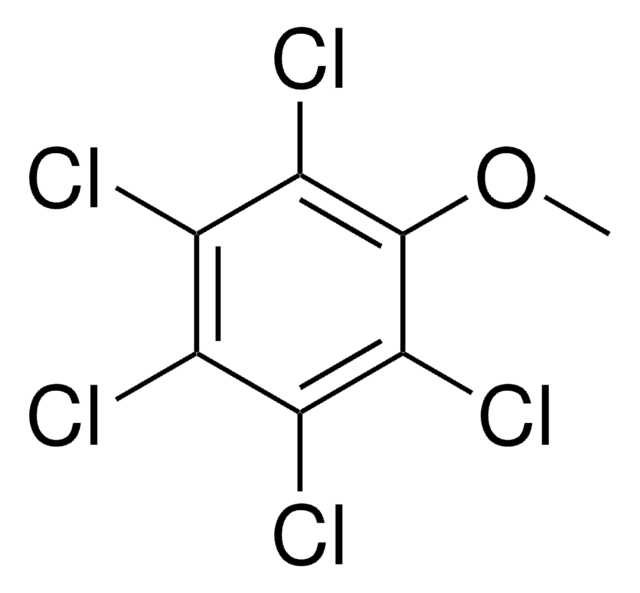About This Item
Recommended Products
grade
analytical standard
Quality Level
CofA
current certificate can be downloaded
packaging
ampule of 100 mg
technique(s)
HPLC: suitable
gas chromatography (GC): suitable
application(s)
environmental
format
neat
storage temp.
2-30°C
SMILES string
Oc1c(Cl)cc(Cl)c(Cl)c1Cl
InChI
1S/C6H2Cl4O/c7-2-1-3(8)6(11)5(10)4(2)9/h1,11H
InChI key
VGVRPFIJEJYOFN-UHFFFAOYSA-N
Looking for similar products? Visit Product Comparison Guide
General description
Application
Signal Word
Danger
Hazard Statements
Precautionary Statements
Hazard Classifications
Acute Tox. 3 Dermal - Acute Tox. 3 Oral - Aquatic Acute 1 - Aquatic Chronic 1 - Eye Irrit. 2 - Skin Irrit. 2
Storage Class Code
6.1C - Combustible acute toxic Cat.3 / toxic compounds or compounds which causing chronic effects
WGK
WGK 3
Flash Point(F)
Not applicable
Flash Point(C)
Not applicable
Personal Protective Equipment
Choose from one of the most recent versions:
Already Own This Product?
Find documentation for the products that you have recently purchased in the Document Library.
Protocols
Analytical standard separation of various phenols for research and industrial applications.
Analytical standard separation of various phenols for research and industrial applications.
Analytical standard separation of various phenols for research and industrial applications.
Analytical standard separation of various phenols for research and industrial applications.
Our team of scientists has experience in all areas of research including Life Science, Material Science, Chemical Synthesis, Chromatography, Analytical and many others.
Contact Technical Service









